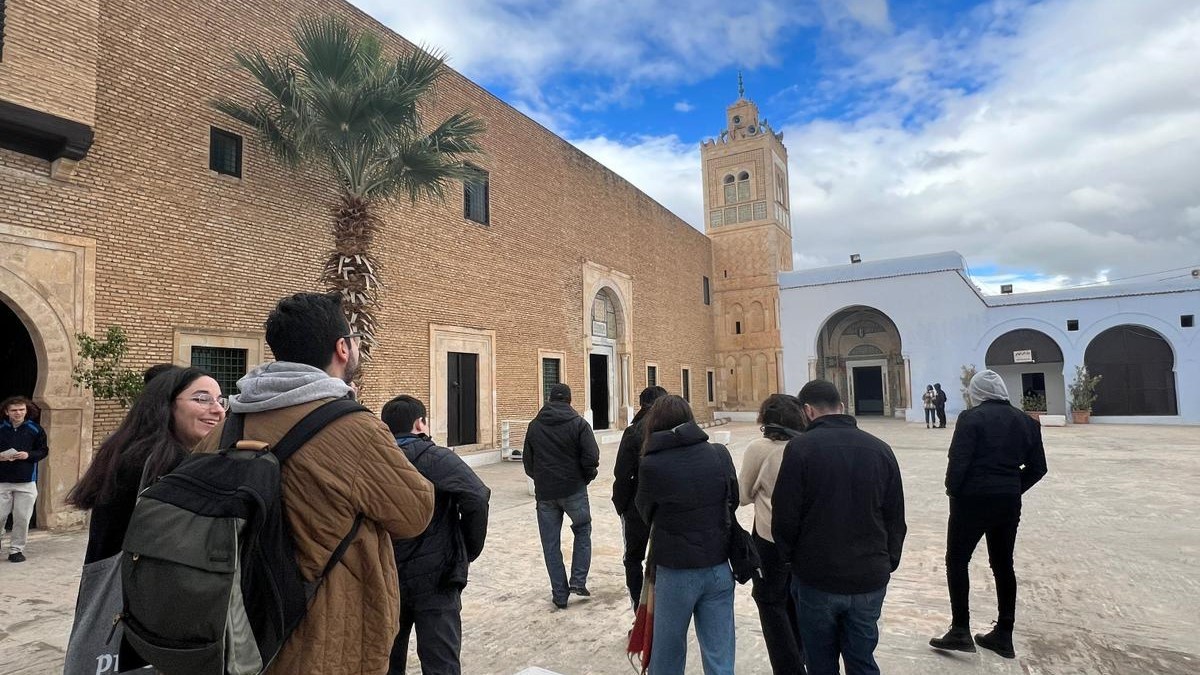Nine Columbia Students visited Kairouan, Tunisia, the fourth holiest city in the Islamic world. Through this excursion, the students were able to learn more about the city's influence on Tunisia's religious and cultural identity.
Founded in the 7th century, Kairouan stands as the oldest Islamic city in North Africa. The students toured key historical sites, such as the Great Mosque of Kairouan, known for its simple yet refined architectural style. The mosque, built in the 9th century, has been a central place for Islamic worship, attracting hundreds of thousands of pilgrims and scholars over the centuries.
Adjacent to the Great Mosque, the students explored the Aghlabid Basins, dating back to the 9th century. These basins reflect Kairouan's advancements in water management and infrastructure during that era, showcasing the city's contributions to Islamic civilization.
The medina of Kairouan, recognized as a UNESCO World Heritage Site, also provided the Kraft Global Fellows with a glimpse into Islamic urban planning. The narrow streets, traditional houses, and vibrant markets conveyed the historical significance of Kairouan as a center for trade, scholarship, and religious discourse.
Beyond its physical landmarks, Kairouan has played a crucial role in Islamic scholarship and education. The presence of historic madrasas, such as the Sidi Sahab Mausoleum, are part of the city's importance in the intellectual and cultural development of the Islamic world.
Coming from diverse backgrounds, faiths, and academic fields, the students were able to approach Kairouan from multiple perspectives, going beyond its architectural and historical elements to grasp its broader significance in the Islamic world.

